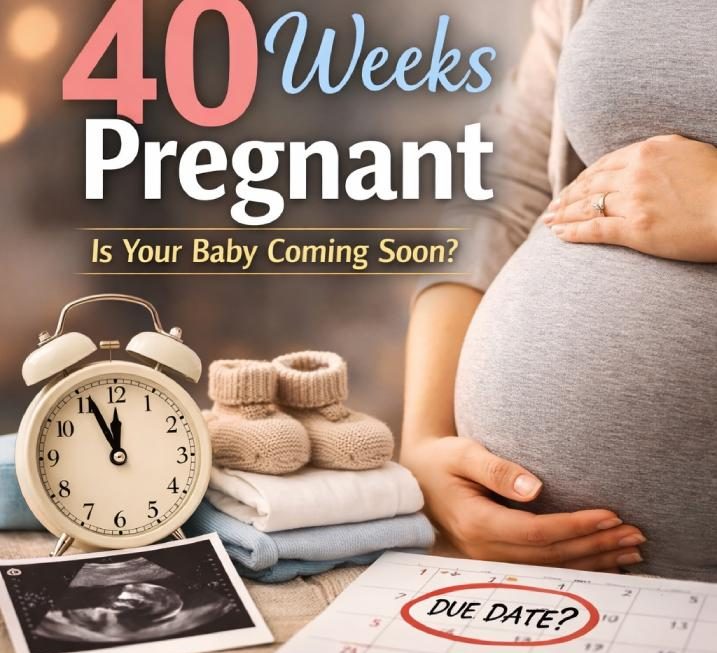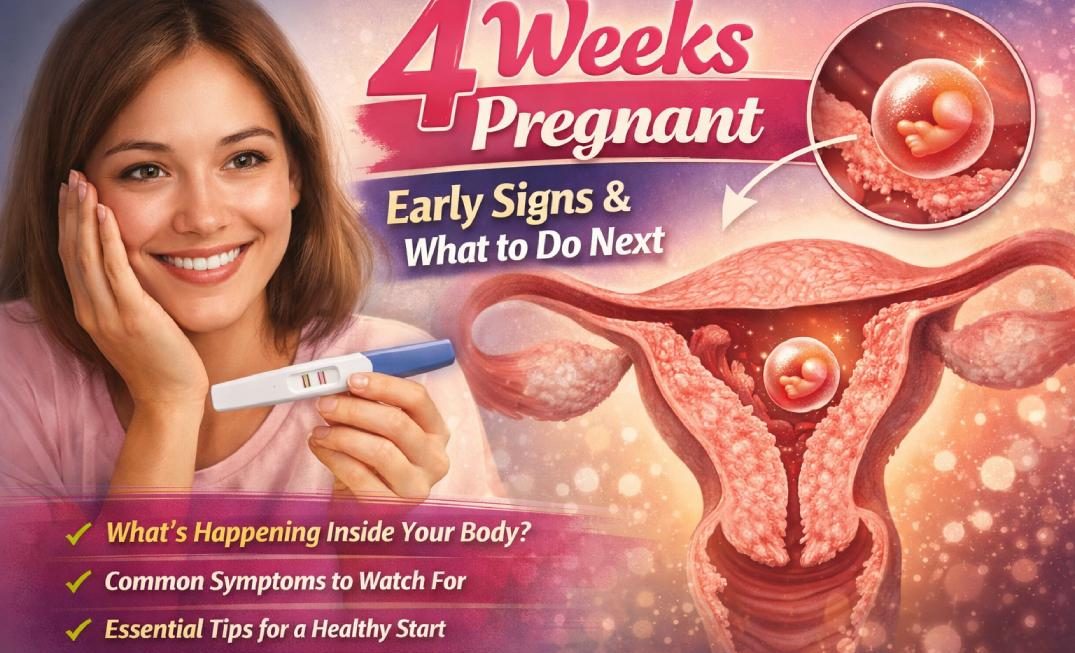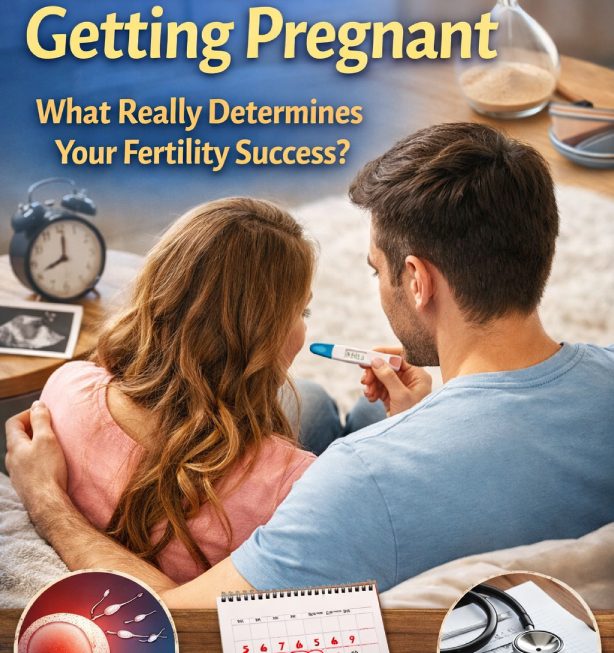Understanding the early signs of pregnancy can be thrilling yet nerve-wracking. Whether you’re actively trying to conceive or suspecting an unexpected pregnancy, recognizing the symptoms early on can be crucial. Pregnancy symptoms can vary widely among women; some may experience significant changes, while others may notice subtle differences.
In this article, we’ll dive into the most common early pregnancy symptoms, providing detailed insights into how you can recognize these signs. We’ll cover everything you need to know from missed periods to morning sickness. This article is designed to offer a thorough understanding of the early indicators of pregnancy, backed by expert advice and real-life experiences.

Missed Period: The Most Common Early Pregnancy Sign
Let’s start with the most common and often the first sign: a missed period. Your menstrual cycle is like clockwork, a well-rehearsed dance between hormones. But if this meticulously timed performance goes off-script, with your period inexplicably absent, it could be a pregnancy cue. However, a missed period isn’t a foolproof indicator. Stress, hormonal fluctuations due to illness, or even certain medications can disrupt your cycle. So, what to do? Don’t jump to conclusions just yet.
How Missing Your Period Can Signal Pregnancy
A missed period is often the first and most obvious sign of pregnancy. For women with regular menstrual cycles, a missed period can be a significant indicator. When fertilization occurs, your body produces human chorionic gonadotropin (hCG), which prevents your menstrual cycle from continuing. This hormone is detectable in your blood and urine and is what pregnancy tests measure.
Variations in Menstrual Cycles
However, it’s important to note that not all missed periods are due to pregnancy. Stress, significant weight changes, and certain medical conditions can also cause your period to be late. If you miss a period, consider taking a home pregnancy test or consulting a healthcare provider to determine the cause.
Morning Sickness: Not Just a Morning Affair
Understanding Morning Sickness
Morning sickness, characterized by nausea and vomiting, is a well-known early pregnancy symptom. Despite its name, it can occur at any time of day or night. This symptom usually begins around the sixth week of pregnancy but can start as early as the fourth week and can last until the end of the first trimester.
Managing Morning Sickness
To manage morning sickness, try eating smaller, more frequent meals and staying hydrated. Some women find relief through ginger tea or prenatal vitamins containing vitamin B6. If your nausea is severe, consult a healthcare provider for further advice.
Tender Breasts and Breast Changes
Breast Tenderness in Early Pregnancy
Breast tenderness and changes are common early signs of pregnancy. Hormonal changes can make your breasts feel swollen, sore, or tingly. The area around your nipples (areolas) may also darken and become more prominent.
Distinguishing Breast Pain
It’s worth noting that breast tenderness can also occur due to other hormonal changes, such as those associated with menstruation. However, if this symptom is combined with a missed period or other signs of pregnancy, it might be time to take a pregnancy test.
Fatigue: An Overwhelming Tiredness
Why Pregnancy Causes Fatigue
Fatigue is another early sign of pregnancy, often beginning as early as the first week after conception. High hormone progesterone levels can make you feel more tired than usual. Additionally, your body is working harder to support the growing fetus, which can also contribute to feelings of exhaustion.
Coping with Pregnancy Fatigue
To combat fatigue, ensure you’re getting plenty of rest. Napping during the day and maintaining a healthy diet can also help. Staying active, when possible, can boost your energy levels.
Frequent Urination: Early Pregnancy Bladder Changes
Increased Urination During Early Pregnancy
Frequent urination is a common symptom in early pregnancy. As your body increases blood flow to the kidneys, your bladder fills up more quickly, causing you to urinate more often. This symptom can appear as early as two to three weeks after conception.
Distinguishing from Other Causes
While frequent urination can indicate pregnancy, it can also be a sign of urinary tract infections or other medical conditions. If you experience discomfort or burning while urinating, consult a healthcare provider.
Food Aversions and Cravings
Understanding Food Cravings and Aversions
Sudden changes in your food preferences can be an early sign of pregnancy. Many women experience aversions to certain foods and strong cravings for others. These changes are thought to be linked to hormonal shifts and can start very early in pregnancy.
Managing Cravings and Aversions
To manage food aversions and cravings, try to maintain a balanced diet and listen to your body. It’s okay to indulge in cravings occasionally, but aim for nutritious choices most of the time.
Mood Swings: Emotional Roller Coaster
Hormonal Influence on Mood Swings
Hormonal changes during early pregnancy can lead to mood swings. You might find yourself more emotional or irritable than usual. These mood changes are similar to those experienced before a menstrual period but can be more intense.
Coping Strategies for Mood Swings
To cope with mood swings, engage in relaxing activities such as yoga or meditation. Talking to a partner, friend, or counselor can also provide support during this emotional time.
Sensitivity to Smells: Heightened Olfactory Senses
Increased Sense of Smell
Many pregnant women report a heightened sense of smell early in pregnancy. This increased sensitivity can make certain smells, even those previously unnoticed, suddenly unbearable.
Managing Sensitivity to Smells
If sensitivity to smells becomes overwhelming, try to avoid strong odors and ensure good ventilation in your living spaces. Some women find that carrying a handkerchief with a soothing scent can help mask unpleasant smells.
Bloating and Constipation: Digestive Changes
Digestive System Adjustments
Bloating and constipation are common early pregnancy symptoms caused by hormonal changes that slow down your digestive system. These symptoms can start as early as the first week after conception and can be uncomfortable.
Relief Strategies for Bloating and Constipation
To relieve bloating and constipation, drink plenty of water, eat high-fiber foods, and stay active. Over-the-counter remedies can help, but consult your healthcare provider before taking any medication.
Light Spotting and Cramping: Implantation Symptoms
Recognizing Implantation Bleeding
Some women experience light spotting and cramping as early signs of pregnancy, known as implantation bleeding. This occurs when the fertilized egg attaches to the lining of the uterus, usually around six to twelve days after conception.
Differentiating from Menstrual Symptoms
Implantation bleeding is typically lighter and shorter than a regular period. If you experience spotting accompanied by other early pregnancy symptoms, consider taking a pregnancy test to confirm.
Elevated Basal Body Temperature
Monitoring Basal Body Temperature
A sustained increase in basal body temperature (BBT) can be an early indicator of pregnancy. BBT typically rises after ovulation and stays elevated if pregnancy occurs. Monitoring your BBT can help you detect this subtle sign.
Using BBT for Pregnancy Detection
To use BBT for pregnancy detection, track your temperature every morning before getting out of bed. A consistent rise in temperature for over two weeks after ovulation could indicate pregnancy.
Positive Pregnancy Test: Confirming Your Suspicions
Types of Pregnancy Tests
If you suspect you’re pregnant based on early symptoms, the most definitive way to confirm is by taking a pregnancy test. Home pregnancy tests detect the presence of hCG in your urine. For the most accurate results, take the test one week after your missed period.
Reading and Interpreting Results
Follow the instructions on the test package carefully. If the test is positive, schedule an appointment with your healthcare provider to confirm the pregnancy through a blood test or ultrasound.
Frequently Asked Questions (FAQs)
1. How Soon Can I Experience Pregnancy Symptoms?
Early pregnancy symptoms can appear as soon as one week after conception, but many women start noticing them around the fourth to sixth week.
2. Can I Be Pregnant and Still Have a Period?
Some women experience light spotting during early pregnancy, often mistaken for a period. However, it’s not a true menstrual period.
3. How Accurate Are Home Pregnancy Tests?
Home pregnancy tests are highly accurate when used correctly, especially one week after a missed period. For the best results, follow the test instructions closely.
4. What Should I Do If I Have a Positive Pregnancy Test?
If you have a positive pregnancy test, schedule an appointment with your healthcare provider to confirm the pregnancy and begin prenatal care.
5. Can Stress Cause Pregnancy Symptoms?
Stress can cause symptoms similar to pregnancy, such as missed periods and fatigue, but it does not cause pregnancy itself. If in doubt, take a pregnancy test to confirm.
6. Are Cramps Normal in Early Pregnancy?
Mild cramping can be normal in early pregnancy due to implantation and the uterus adjusting to accommodate the growing embryo. However, severe cramps should be checked by a healthcare provider.
Congratulations on taking this exciting step towards parenthood! Remember, this guide serves as a starting point. By consulting your healthcare provider and staying informed, you can navigate your pregnancy journey with confidence.


